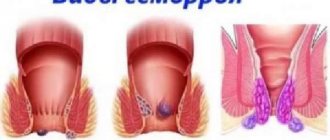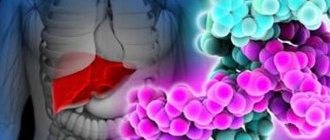Psychosomatics is a branch of medicine that studies the interaction between the mind and body. In other words, how do psychological factors influence the development of somatic disease? It is important to take into account that the resulting pathology is very real, is severe and difficult to treat. This is because therapy for psychosomatic diseases should be aimed at the main link of pathogenesis, more precisely, at the psychological factor. Such illnesses should not be confused with an ordinary mental disorder or with the fact that a person has invented a problem for himself. This is a very real and serious pathology that requires complex treatment and a professional approach. For example, there is the psychosomatics of hemorrhoids in men or women and other somatic diseases.
Causes of psychosomatic pathologies
- Chronic stress. This is one of the important and common reasons that most often affects residents of large cities. A person may not even suspect that the main etiological factor of the existing disease lies in a mental disorder. It is not surprising that such people may not benefit from medications and other therapeutic procedures;
- Prolonged experience. Problems in the family, at work, fear of something or for someone can also lead to the development of a somatic illness;
- Hidden emotions. This problem applies to those people who keep everything “to themselves” and do not share their experiences with loved ones. Sometimes it is enough to talk about your experiences and share them to prevent serious consequences;
- Self-hypnosis. This is surprising, but the manifestation of such a pathology as hemorrhoids can be a consequence of self-hypnosis. If a person has invented a disease for himself and believes in its presence, the disease can actually develop.
Is there a connection between soul, character and health?
Before explaining what the principles of psychosomatics are, we will give three quotes from great people.
- “Our life is what we think about it” (Marcus Aurelius).
- “What we are today is a consequence of our yesterday’s thoughts, and today’s thoughts create tomorrow’s life. Life is a creation of our mind.” (Buddha).
- “If your health is bad, think about something else.” (Edward Benson).
Paraphrasing each of these statements into the language of psychosomatics, we can say that the state of the nervous system, thoughts and mood of a person also influence the state of his health. The psyche and body are inextricably linked with each other, and there are a great many striking examples of this. Have you noticed how easily you can get sick, for example, catch a cold, if you are in a bad mood or some mental problem is haunting you? It can be observed that the exacerbation of chronic diseases often occurs precisely during the period of some life troubles, stress or depressive conditions. Hemorrhoids are no exception. Psychosomatics is called upon to explain these phenomena; let’s get to know it better.
Psychosomatics of hemorrhoids in women
“All diseases come from nerves” is a true and most appropriate statement that directly connects the development of somatic pathology with mental problems. Women are known to be more sensitive and emotional, which can lead to serious consequences. It would seem how the development of hemorrhoids can be associated with personal experiences. However, all this can be taken apart. Psychosomatics of hemorrhoids in women has its own reasons:
- Poor nutrition. This is especially true for those women who devote a lot of time to family, work, and favorite activities and completely forget to monitor their diet. Hence frequent constipation, indigestion and hemorrhoids. But at the same time, they are absolutely sure that everything is in order with their psyche and giving themselves completely to their family is a completely normal decision;
- Frequent stress that turns into chronic stress, lack of sleep, anxiety and other emotional manifestations;
- Inability to part with the past. The psychosomatics of hemorrhoids in women may be due to the fact that a person is afraid of losing touch with the past and letting it go. After all, the anus is associated with liberation from unnecessary things. And if a person is not mentally ready to part with the past, then physically problems arise with emptying;
- Greed. In a normal physiological process, food must enter the body and be digested, and its unnecessary residues must be exited through the anus. But if a person is prone to greed and stinginess, collects a lot of unnecessary things and clutters the house, this can affect digestion;
- The psychosomatics of hemorrhoids in women may be associated with mental retardation. A person must improve throughout his life. If development stops, physiological processes slow down. Most often this happens after the birth of a child, when a woman leaves work forever and narrows her social circle in order to devote herself to her family.
Preventive measures
To prevent the disease, it is recommended to leave your comfort zone at least occasionally. This technique contributes to human development. Daily walks, working in the fresh air, and playing sports will help you cope with a sedentary lifestyle. But it is not recommended to do workouts that involve lifting heavy weights.
A person should monitor the regularity of their meals and their diet. It is recommended to include more fiber in the menu, less fatty and spicy foods. It is also important to monitor the amount of water consumed.
From time to time, psychological relief is necessary. It is carried out jointly with a psychologist. This technique allows you to eliminate bad thoughts and tune in to a positive mood. You should not reproach yourself for past mistakes or revel in guilt. A person needs to look only forward and move towards his goals.
Psychosomatics of hemorrhoids in men
The reasons for the development of hemorrhoids in men are almost the same as in women. However, many men are more prone to chronic stress, find it more difficult to share their problems with other people, and are more likely to immerse themselves in work. The development of hemorrhoids in men may be associated with long-term worries about providing for their family, since a man is traditionally the “breadwinner”. The stereotype that has developed over centuries does not allow you to fully take care of your health and relax. Men can have quite complex psychosomatics. Hemorrhoids in this case are a consequence of long-term mental disorders.
Louise Hay's technique
Louise Hay is the founder of the self-help movement. She has written many books on self-development, where she proves that almost all somatic diseases, to one degree or another, depend on the person himself. In particular, Louise Hay associates the development of hemorrhoids with the following reasons:
- Resentment towards oneself, others, the environment and the world in general;
- Fear of sharing your problems with others;
- Hidden anger;
- Fear of losing a chance at something;
- Fear of separation.
Louise Hay associates the development of hemorrhoids with internal causes that a person cannot understand or does not want to. Emotions govern all processes in the body and you need to look for the cause inside, not outside. This is exactly the theory that the famous psychologist describes in his books. Louise Hay suggests starting the fight against hemorrhoids by understanding yourself. And if you can’t do it yourself, you just need to turn to specialists.
Liz Burbo's technique
Psychologist Liz Burbo quite simply explains the cause of the problems - psychosomatics. Hemorrhoids develop in those people who tend to restrain themselves in something. Most often, these are people who do work they don’t like, don’t express their emotions, are embarrassed by their shortcomings and are constantly forced to deny themselves something. According to Liz Burbo, hemorrhoids are the end result of mental experiences. Since the rectum is the final section of the large intestine, it is susceptible to disease due to the fact that a person pushes himself, tries to manage everything and do it on time.
The main cause of this pathology, in her opinion, is psychosomatics. Hemorrhoids are a consequence of uncertainty about the future, a constant race against time, and emotional distress. Treatment in this case should be comprehensive and mainly aimed at establishing balance in one’s own thoughts. Not every person can admit that they are sick not only physically, but also mentally.
Trophic disturbance
Trophic processes occur throughout the body, ensuring the growth, division and maturation of cells, maintaining the structure and function of the organ and tissues. To understand the essence of what is happening, I will give an example. In the case of an abrasion, scratch, burn, the task of medicine is to create favorable conditions for restoring the integrity of the skin (healing) - clean the wound, if necessary, treat it with an antiseptic, apply a bandage and subsequently care for it, protecting it from infection, rough mechanical and other influences. Cell division, nutrition, removal of metabolic products, i.e. a set of processes of tissue and cellular assimilation and dissimilation are carried out by the body. These processes indicate a fundamental property of the body - the ability to self-heal and self-regulate. Moreover, the entire set of reparative processes does not occur on its own, but under the control and thanks to nervous influences - innervation. Accordingly, if innervation processes are disrupted, then, as a consequence, secondary trophic disorders occur.
The tissues in the anal area, the venous plexus and the rectum, as well as all the processes occurring in them, are under the constant control of the nervous system, or more precisely, the rectal subcortical nerve center *, located in the medulla oblongata of the brain stem (not to be confused with the center of defecation, which is located in the sacral part of the spinal cord).
In the case of hemorrhoids, trophic disorders manifest themselves in changes in the structure of the tissue of the vascular wall of the venous rectal plexus, making it more pliable and loose, which facilitates its protrusion, i.e. relapse. In addition, these disorders are manifested by long-term non-healing cracks (slow regeneration), anal itching, reduced local immunity (easy infection).
It should be clarified that these trophic changes arise due to disruption of the rectal nerve center* and are reflex (neurogenic).
Hemorrhoids according to Sinelnikov
Valery Sinelnikov wrote many works in which he pointed out the close connection of the brain with the development of certain pathologies. In particular, he wrote the following about hemorrhoids: the cause of pathology is the discrepancy between a person’s subconscious and his conscious desires. According to him, the inner mind “knows” much more about a person than he may assume. Diseases of the colon are associated with certain emotional experiences. Psychosomatics plays an important role as a cause of hemorrhoids. Valery Sinelnikov identified the following reasons for the development of the disease:
- Dissatisfaction with the results of your work. These are people who always want to get more of what they have. Even after completing the work, they feel that they could have done better. All this leads to mental disorder and the development of somatic diseases;
- Aggression towards any changes. Such people do not like redevelopment, reshuffling, changing their place of work or direction in their profession. And if they have to make changes, they suffer, which subsequently affects the body as a whole;
- Psychosomatics, as a cause of hemorrhoids, can be observed in people who cannot forget the mistakes of past years. A person constantly experiences feelings of guilt, envy, and anger. This does not allow you to fully start a new job and can cause physical illness;
- An extremely pronounced reason for the development of hemorrhoids is the inability to part with old things. These are people who tend to collect and store unnecessary junk that has no particular value. However, if they have to part with it, a person is overwhelmed with strong emotions associated with the loss of something valuable and necessary for their life.
According to Sinelnikov, hemorrhoids are a secondary disease that is a consequence of a mental disorder.
Treatment of psychosomatic pathologies must begin with the head. No matter how strange it may sound, most diseases occur due to mental disorders. And if it is not possible to cope with such problems on your own, you need to turn to specialists.
Mental block
In addition to emotions, a person’s life is also controlled by his thoughts and feelings. One might even say a global attitude to life. Adherents of such views on the cause of disease believe that a painful state of mind occurs first. Against this background, some behavioral habits are formed - character, and the organs react very sensitively to its bad traits. The more the character deteriorates, the stronger the manifestation of the disease.
The main features influencing the development of hemorrhoids include:
- coarseness,
- laziness,
- uncleanliness,
- sloppiness,
- selfishness.
Many of these people use aggressive expressions in their speech, one way or another related to the act of defecation. For example, “he doesn’t give a damn about it,” “shove it up his ass.” Undoubtedly, the physical state of the body reflects the thoughts and mind of a person.











